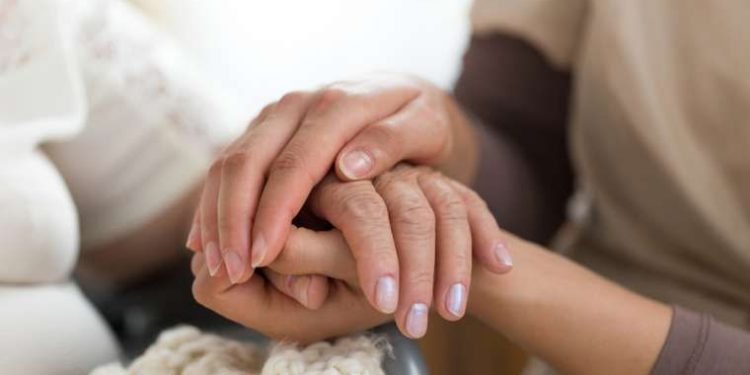Joe Zalot, an ethicist and the director of education at the National Catholic Bioethics Center, said that hospice, when done right, is “very, very important” for both dying patients and families.
“Hospice, when done correctly, is proper accompaniment at the end of life,” Zalot said. “It’s palliating symptoms, it’s providing spiritual care, it’s helping people live the most full possible life that they can given the limitations of their illness. It’s helping them and their family prepare well for death.”
“When done well, it’s absolutely vital and very much in line with Catholic teaching,” he said.
Zalot warned, however, that there are “not-so-good” hospice practices on the market as well.
“We get calls on our consult line and we hear horror stories, from families and doctors, where people go in and they’re medicated for whatever reason, there’s questions about nutrition and hydration, any number of different things,” he said.
Zalot said the best hospice workers are those who support the family unobtrusively. “If you don’t know what they did, they probably did their job correctly,” he said.
Among the best practices of hospice, he said, are symptom management, relief from pain and nausea, and relief from complications that arise from one’s pain, conditions, or treatments.
“Another essential element is to help family members and support them as they journey with their loved ones,” he said.
“Specifically from a Catholic perspective, a very good-quality hospice is one that provides spiritual care and access to the sacraments, through chaplains,” Zalot noted.
Backoff said their patients are split between home and hospital settings, with the majority in the former. “We have 750 patients, and all but about 120 are at home,” she said. “The rest are in nursing homes or in our hospice facility.”
“The average length of stay for us is about 70 days,” she said. “That’s average for us, and probably it’s fairly consistent around the country.”
(Story continues below)
Subscribe to our daily newsletter
Zalot said the Church’s opposition to euthanasia and assisted suicide is because those procedures are quite literally homicide. “You’re killing people,” he said.
“It’s sort of like abortion,” Zalot said. “We have all of these euphemisms — ’reproductive rights,’ et cetera. It’s the same thing with assisted suicide and euthanasia: ‘Death with dignity,’ ‘medical aid in dying.’”
“Euthanasia and assisted suicide are killing people,” he said. “They are actions that kill people. And the Fifth Commandment says that thou shalt not kill. And that’s the bottom line.”
Credit: Source link




